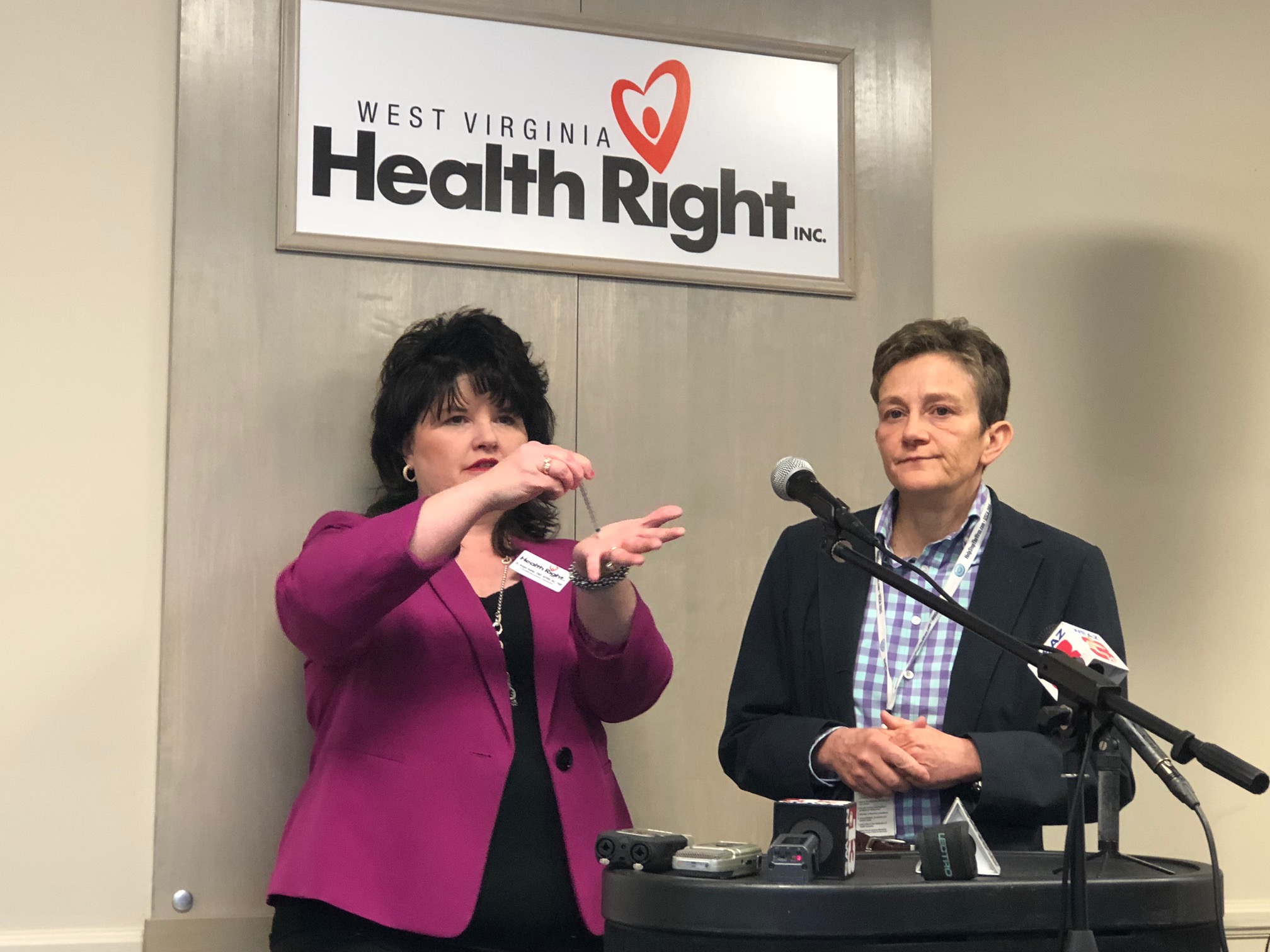CHARLESTON, W.Va. — West Virginia Health Right is making some changes to its needle exchange program after hearing several concerns about a similar program at the Kanawha-Charleston Health Department.
The health clinic, located in Charleston, will provide retractable needles to patients beginning this week. The move was announced during a Wednesday press conference.
“The needle goes into the hub, it’s in plastic and it’s not to be tampered with in terms of anybody getting stuck with it,” Dr. Angie Settle, CEO of WV Health Right, explained. “We’re going to give it a try. I feel like we’re at the level here, locally, that something has to be done.”
Health Right’s needle exchange program is in jeopardy of being eliminated if the City of Charleston passes a bill that would outlaw the possession of hypodermic needles.
Settle said her program could loose thousands of dollars in grant money if the city moves to do away with syringes.
“If this legislation is passed where needles are considered drug paraphernalia and then that would be a crime that someone could be arrested for, my patient could then be in jeopardy for my program. It becomes a question of that we’re putting them in harms way,” Settle said.
The health department’s program could also shutdown if the bill passes.
Charleston City Council voted Monday to table the bill, proposed by Mayor Danny Jones. A task force will examine the measure for 60 days.
Mayor Jones, Police Chief Steve Cooper and other city officials have expressed concern about the growing amount of dirty needles ending up all over town. Advocates of the syringe exchange believe it helps stop the spread of infectious diseases like HIV and hepatitis C.
Health Right’s program has been around since 2011. It includes a 1-to-1 exchange. A patient is provided with 30 needles during the first visit and is expected to return 30 needles. If the patient does not return the 30 needles, Settle said he or she will be expelled from the program.
“Some might see that as harsh, but I see that as a safe guard,” she said.
Patients must also show up in person and provide identification to exchange needles. KCHD recently put the same policy in place. People at the health department used to be able to pick up needles for other patients.
Settle said their program has remained very strict, which is why they haven’t had any problems with used syringes ending up in public places. She said she understands the public’s concerns.
“I have six kids that walk down the street and go to school everyday, too. I’m concerned about the needles that we’re finding, but I would offer that the concept of harm reduction is not universal to just doing the program one way. It can be done different ways,” she said.
At Health Right, patients must first have a routine exam and meet with a psychologist to explore rehab options.
Patients will still be held accountable for the 30 retractable needles, Settle said.
In addition to the new needles, Settle said she also wants to distinguish which used syringes found on city streets came from Health Right.
The clinic typically sees about 150 people per month for needle exchanges.
Settle said about 90 percent of participants return the needles.
There’s no doubt the program has grown due to the opioid epidemic, she added. Their goal has always been to get people into treatment and recovery.
Patients can visit the clinic Monday through Friday from 8 a.m. to 4 p.m. to get clean needles.
West Virginia Health Right was the first facility in the state to implement a harm reduction program.

